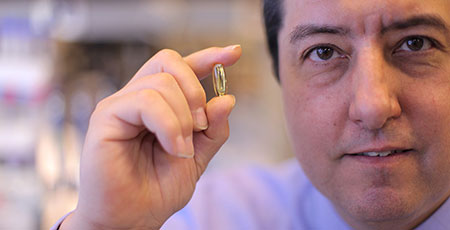
A compound derived from a vitamin found naturally in milk and some fermented foods improves cardiac function in mice and extends their lifespan when used as a treatment for a type of genetic heart disease, a study conducted in collaboration with a Weill Cornell Medicine researcher shows. This discovery extends the potential health benefits of nicotinamide riboside, which scientists previously found boosts cells' ability to convert nutrients into energy, lessening the severity of neurodegenerative disease and metabolic disorders.
Published Oct. 8 in Cell Reports and led by investigators from Duke University, the pre-clinical study explored a genetic alteration that causes iron deficiency in the heart and subsequent acute heart failure. The investigators gave nicotinamide riboside to mice with this alteration and found that the compound mitigated the negative consequences of the reduced iron in the heart and extended the rodents' lifespans. The scientists say their findings indicate that the compound, a form of vitamin B3 that is known to increase a metabolite essential to creating energy within cells (called nicotinamide adenine dinucleotide, or NAD), could potentially be used in the future to treat heart disease and heart failure.
"This is a very exciting finding, and one of the first times we've shown that using this powerful vitamin to increase NAD production can provide substantial benefits," said Dr. Anthony Sauve, an associate professor of pharmacology at Weill Cornell Medicine who invented a method for synthesizing large quantities of nicoinamide riboside years ago and co-authored the Cell Reports paper. "This study points to a relatively non-toxic and commercially available approach that could be clinically developed to improve heart function."
Although the compound is currently available to consumers and marketed as an age-enhancing vitamin supplement, Dr. Sauve cautions that clinical trials need to be run to prove that it works and to establish the correct dosage. So while no one should be rushing out to buy it now, "this finding is still a nice proof of concept," Dr. Sauve said. "This could be very promising."
